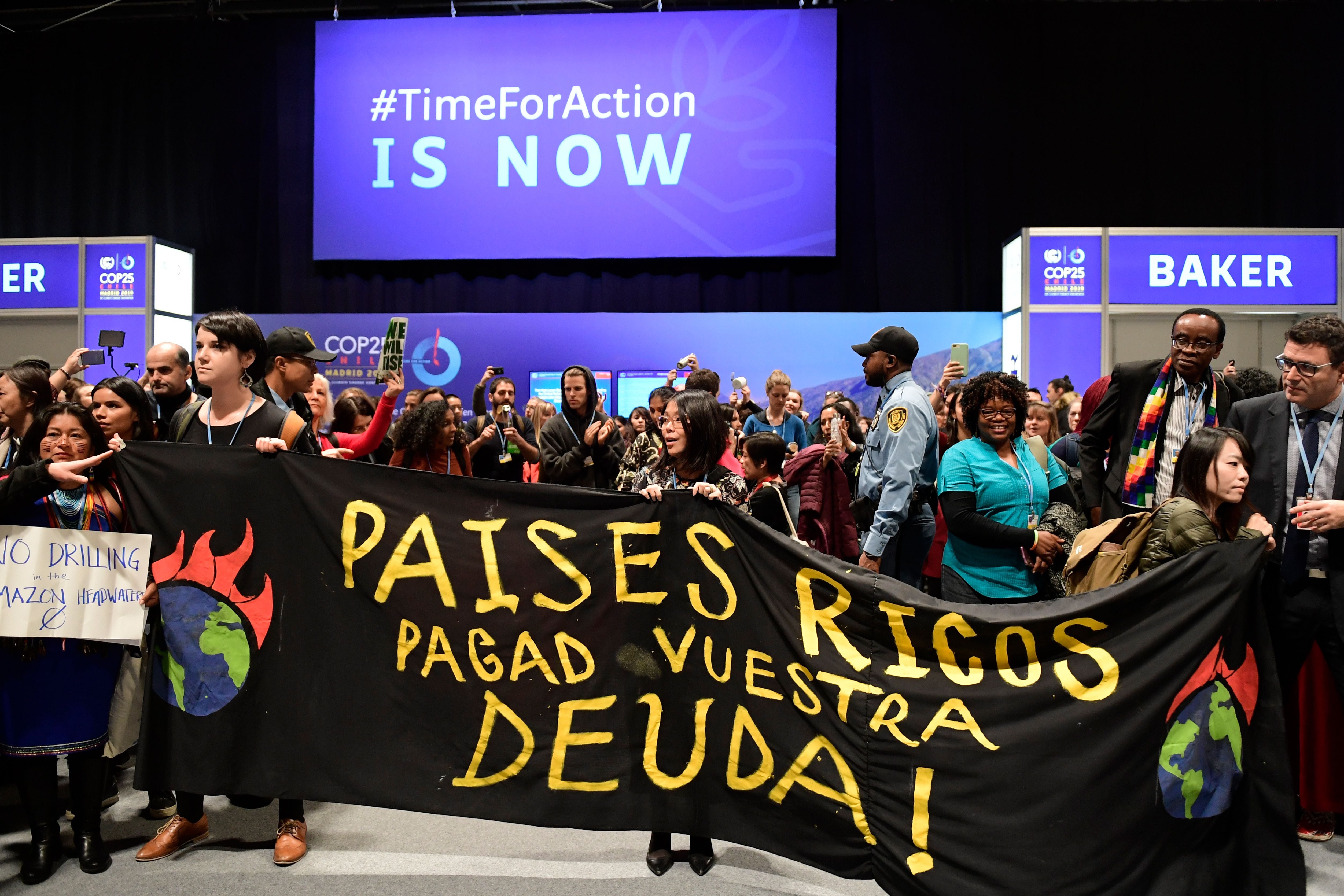Brazilian spies ‘tracked country’s own delegates’ at international climate conference
Four agents believed to have kept tabs on criticism of Jair Bolsonaro’s administration during Cop25 summit in Madrid last year

Your support helps us to tell the story
From reproductive rights to climate change to Big Tech, The Independent is on the ground when the story is developing. Whether it's investigating the financials of Elon Musk's pro-Trump PAC or producing our latest documentary, 'The A Word', which shines a light on the American women fighting for reproductive rights, we know how important it is to parse out the facts from the messaging.
At such a critical moment in US history, we need reporters on the ground. Your donation allows us to keep sending journalists to speak to both sides of the story.
The Independent is trusted by Americans across the entire political spectrum. And unlike many other quality news outlets, we choose not to lock Americans out of our reporting and analysis with paywalls. We believe quality journalism should be available to everyone, paid for by those who can afford it.
Your support makes all the difference.Jair Bolsonaro’s government has been accused of sending spies to keep track on Brazilian negotiators and environment campaigners attending the Cop25 climate talks in Madrid in 2019.
At least four members of the Brazilian secret services attended the conference, according to the newspaper Estadao.
They presented themselves at the UN conference as “analysts”, without mentioning they worked for the Brazilian Intelligence Agency (Abin).
While there, they reportedly monitored non-governmental organisations (NGOs), members of the Brazilian delegation, and representatives of foreign delegations, the paper reports.
Speaking anonymously, one of the agents told Estadao the purpose of the surveillance was to monitor criticism of Mr Bolsonaro’s administration, especially regarding the Amazon, and to “defend the country’s interests”.
He also admitted that campaigns by NGOs were also a primary interest, the paper reports.
It is apparently the first time state security services have attended an international climate summit, and comes amid Mr Bolsonaro’s increasing hostility to climate science and those concerned about illegal fires being set to clear large parts of the Amazon rainforest.
NGOs have been a favourite target of Mr Bolsonaro who has accused them of being behind the rise in fires in recent years.
Ahead of Mr Bolsonaro’s election in 2018, Brazil had been in line to host the COP25 summit, but after he became president, he pulled the country out, citing budgetary constraints.
Speaking to the website Climate Home News, one Brazilian environmentalist who attended the summit in Madrid said some of the apparent intelligence gathering done by the agents was so obvious it was “funny”, with them taking it in turns to attend meetings and take notes.
The environmentalist described how they were personally approached by one of the agents, who asked them their name, and then told them he worked for Brazil’s Institutional Security Office (GSI) which is linked to Abin, and the conversation then ended.
They said the surveillance was “strange but not surprising” and they were already aware the Brazilian government was creating “a hostile environment” for NGOs.
During the two-week-long conference there was also a rumour the Brazilian civil society pavilion was bugged so some discussions were held outside of it as a precaution.
According to other climate campaigners, Brazilian delegates at the conference were worried about being seen together with them.
One told Climate Home they had approached one of the negotiators who they had known for a long time. “He never looked at me while he walked,” they said. “And all of a sudden, near the sofas between pavilions, he jumps aside and hides behind a pillar. ‘I have already told you I can’t be seen with you, goddammit!’ That was their level of stress.”
The Brazilian government is becoming increasingly concerned about the international perception of Mr Bolsonaro as an environmental villain, due to the immediate economic consequences as it rebuilds its economy after the Coronavirus pandemic.
The president of the Central Bank of Brazil, Roberto Campos Neto, said on Tuesday that investments were not returning to Brazil at the same speed as to other emerging economies due to the “sustainability agenda”, which he acknowledged was “widespread in other countries”.
Fires in Brazil’s Amazon increased by 13 per cent during the first nine months of 2020 compared with 2019, making the blazes the worst in a decade, according to the country’s space research agency Inpe.
The surge in fires, particularly those in the Pantanal - the world's largest tropical wetland area - are generating increasing concern around the world due to their impact on the climate and biodiversity crises - issues which until the Coronavirus pandemic had topped the European political agenda.




Join our commenting forum
Join thought-provoking conversations, follow other Independent readers and see their replies
Comments